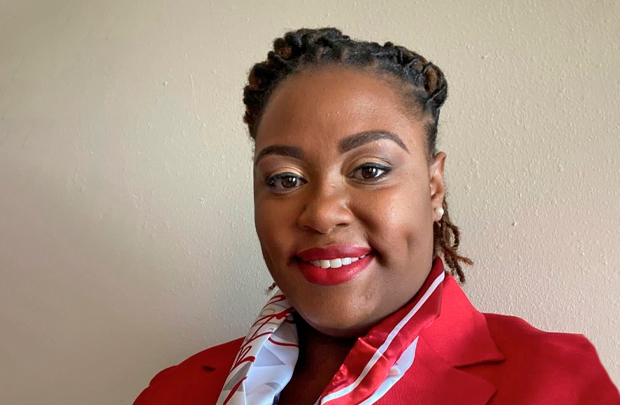
Rolounda Hayes is a licensure specialist in Mississippi. She works with foster and kinship families to ensure they meet the state’s requirements and, she says, “assists with any need the families might have.”
A foster mother suggested that we feature Rolounda as an Outstanding Caseworker, writing:
“Our goal of being foster parents almost became a pipe dream with our first placement, a sweet African American girl. Since we are of a different race, we had no understanding of the requirements of a different hair type. When she came to us, the child hated her hairstyle. She would cry, and I honestly felt hopeless. Rolounda was the first person to come around and show me grace and compassion. She stayed well after hours and taught me how to wash and take care of the child’s hair. She had patience with me as I learned and reminded me that I could do it. Hair shouldn’t be an obstacle in foster parenting, and I am forever grateful that Rolounda taught me that…Over the years, Rolounda has helped me learn to say ‘no’ so I don’t take on more than I can handle. She tells me I am doing a good job, which is important to hear. And she not only checks on my foster kids, but she checks on all of my children. She knows my family, and she cares.”
We talked with Rolounda about her work with this family and the qualities of a good foster parent.
Were you surprised to read about the impact you had on this family?
It was good to hear that this mother appreciated me. And I would say that she is pretty amazing too! Her interest in meeting children’s cultural needs goes far beyond learning about her hair care. She and her husband have also done things like decorating their home with African-type wall art and they spending time with other children who share her culture. And now she runs a group to help train and support other parents.
In addition to honoring a child’s culture, what are some other qualities of a successful foster parent?
A good foster parent knows that the goal is always reunification, and they work toward that goal. They keep birth parents involved and updated through regular phone calls and emails and invite them to activities at school, church, and other places that are important to the child.
Basically, a good foster parent gives the birth parent opportunities to parent, even though they are not with the child on a daily basis. Because doing that helps motivate the birth parent and makes for an easier, less traumatic transition back to the home.
Foster parents also have to be willing to maintain contact with children’s siblings. That’s not only the right thing to do, it’s our state policy. The mother who wrote to you is doing a great job of that.
A quality that I really appreciate in foster parents is that they are willing to share information about the child with their worker. Foster parents see so much more of a child than a worker ever can, and they need to tell us what they are observing so we can offer assistance and suggestions. And then, they need to be open to hearing our advice!
To people considering foster parenting, I say: We have a lot of great workers and a lot of great kids who need someone to give them a chance. That person could be you.
What are some unexpected challenges that you see foster parents face?
When people think about becoming a foster parent, they think about what it will be like to have another child in their home. What they may not realize is that with that child come visits from a lot of adults! Each family has worker, a licensure specialist, and sometimes adoption specialist. The child has a worker, and maybe a CASA volunteer at least. There could be therapists and other professionals depending on the issues the child is dealing with. It can feel like someone is always coming into a foster parent’s home. But experienced parents learn how to schedule visits to minimize the disruptions and mesh with their schedules.
What keeps you doing this work?
I love seeing children be reunified with a parent who has done everything the court asks them to do and can make a safe home for their child. That is a real accomplishment for a birth parent. I also get a lot of joy when I see children experience new things with a foster family. Simple things, like fishing or going to the movies.
And it might sound strange, but part of my job is listening to people complain, and I don’t mind that at all! Because I want people to feel like someone is listening to them and to be the one to bridge the communication gap and get them what they need. That is very rewarding.
Final thoughts?
We need more foster parents! I understand that everyone has apprehension. And I know that there are challenges. But we can work through those apprehensions and challenges. To people considering foster parenting, I say: We have a lot of great workers and a lot of great kids who need someone to give them a chance. That person could be you.
Think foster parenting might be for you? Learn more about becoming a foster parent on our website.